- Home
- H A CULLEY
Seeking Jerusalem Page 2
Seeking Jerusalem Read online
Page 2
Whilst Gerard de Ridefort could only see the enemy before him and lusted after battle, the Grand Master of the Hospitallers was more aware of the bigger picture. Count Raymond of Tripoli had negotiated the peace between the Christian states and the Saracens three years previously and Raymond was determined to keep it. When Raynard de Chatillon, Prince of Antioch, had raided a Muslim caravan, Count Raymond had tried to appease the wrath of Saladin. He had agreed that he might make a reconnaissance in force for one day only in order to plan his punishment of Raynard. Saladin had stuck to the agreement made with Raymond and no towns or villages were attacked and no-one was killed.
However, Raymond’s deal with Saladin was common knowledge and Gerard de Ridefort of the Templars had accused Raymond of treachery. Roger des Moulins had come along with a handful of his Hospitallers in the vain hope of deterring the Templars from making matters worse. He was astute enough to realise that any attack on the Saracen force would give Saladin just the excuse he needed to tear up the treaty he had signed and launch a full scale invasion. Unfortunately Gerard was neither clever nor wise and couldn’t understand that Saladin, who was a man of honour if he was anything, wouldn’t feel able to invade unless the treaty was first broken by the Christian states.
The sun blazed down and the waiting knights sweltered in their chainmail, which grew almost too hot to touch, even under the surcoats they all wore. Dust devils skittered across the dunes surrounding them and the sand worked its way beneath their armour and the padded clothing underneath. This made even the most equable of the knights irritable and impatient to take their frustration out on the Saracens.
‘Pah! Are you Hospitallers cowards? There lies the enemy on our side of the border and I and my Templars are not going to shirk a fight just because we are outnumbered.’ With that de Ridefort rode back down the hill and told his men to mount up. With a sigh, Roger signalled for his Hospitallers to do likewise and they were shortly joined by the forty others from the royal garrison at Nazareth. They rode to the top of the ridge in three ranks with their squires tagging along behind, chattering with excitement at the prospect of the battle to come.
When they reached to top of the ridge everyone fell silent. Below them some seven thousand light cavalry and horse archers were in the process of leaving the Springs of Cresson to ride the last fifteen miles to the crossing over the Jordan. They spotted the knights at the same moment that de Ridefort yelled the order to charge and dug his spurs into his destrier’s side. With a snort the horse leapt forward and started to gallop downhill. The rest of the knights couched their lances and followed.
When the three lines of heavy cavalry hit the closest of the Saracens, the latter parted like water before the prow of a ship and then closed again after the knights were inside the trap. Many of the knight’s lances speared a Saracen but the loss of a hundred men amongst so many made little difference. To the watching squires it seemed as if their masters had been swallowed whole as the white, black and blue surcoats disappeared from sight. The knights fought bravely, cutting down with their swords any of the Saracens who came too close, but many lost their destriers to the horse archers and were then overwhelmed as they fought on foot.
As the squires watched they saw the Templar Grand Master emerge from the fray with four of his knights and flee towards Nazareth. A few others followed, but none were Hospitallers. Suddenly a circle cleared in the middle of the milling warriors to reveal a solitary Templar still on his horse surrounded by a dozen dead Saracens. There was a pause before he disappeared from view again. Later the story circulated that James de Mailley, the Marshal of the Templars, who had supported the Grand Master of the Hospitallers in opposing the attack, had fought so valiantly that the Saracens had offered him the opportunity to surrender. When he refused, he died under a hail of javelins and arrows. Then the squires saw a party of Saracens starting up the slope towards them and they too headed for Nazareth as fast as their horses could take them.
As the sun set over Galilee the Saracens rode past the walls of Tiberias from where Raymond of Tripoli watched. At first a wave of relief washed over him as it appeared that they had stuck to their agreement, but then he noticed with mounting horror that over a hundred decapitated heads stuck onto spears were being waved aloft as the Saracens headed back towards the West Bank. With less than twelve hundred knights in total throughout the Holy Land, the Christians could scarcely afford to lose over a hundred of them in one skirmish.
Worse, Raymond was considered a traitor by many, including some of his own men; the leaders of the Christian states were now more divided than ever.
~#~
When the news of the massacre at the Springs of Cresson reached Jerusalem the main reaction was righteous anger and Guy de Lusignan, King of Jerusalem, began to assemble a large army to punish the Saracens.
Saladin had been at Tell Ashterah when his victorious reconnaissance force returned. As soon as he saw the jubilant reaction of his troops to the victory, he too started to prepare for war. Within a few months he had gathered a host of twenty five thousand from far and wide - Kurds, Bedouins and Seleucid Turks as well as his own Syrians and Egyptians.
The Christian assembly point was the oasis at La Safouri. Some twenty thousand foot soldiers joined over a thousand knights. Had they remained there and awaited the arrival of the Saracen host they would have been well matched. But this was when Saladin showed why he was a great military commander and Guy de Lusignan was not. At La Safouri the Christians had abundant water and a good supply of food. So Saladin decided that he needed to lure them out into the dry arid wastes between there and Tiberias.
He began by storming the town of Tiberias and destroying it. Count Raymond’s wife held out in the castle but she wouldn’t be able to defend it for long, so she sent an appeal for support to her husband. The hot-headed Gerard de Ridefort had evidently learned nothing from the debacle at the Springs of Cresson because he immediately urged King Guy to march to the relief of Tiberias. In this he was supported by Raynard de Chatillon: the man who had first broken the treaty by his attack on a caravan. Raymond, despite the peril his wife was in, was more cautious.
‘This is what Saladin wants, sire. Here we have food and plenty of water, our troops are fresh and we have a good defensive position. If we advance into the desert we will soon run out of supplies and there is little or no water. Furthermore our men will become exhausted in the heat,’ Raymond advised Guy.
‘We will be protected by the True Cross which we carry before us. God will provide for us and protect us.’ The Grand Master of the Templars flashed Count Raymond a look of contempt.
‘De Ridefort is right, Guy.’ As the Prince of Antioch, Raynard wasn’t about to call Guy, a landless Poitevin knight before he married the sister of the King of Jerusalem, sire. ‘And there are wells at the villages.’
‘There are few enough of those and they can’t provide water for twenty thousand men and three thousand horses.’ Raymond was appalled at the thought of advancing into a barren desert whilst subjected to harassing attacks by the Muslims. Although the views of a man who most considered to blame for the current situation were tainted, many of the barons were also uneasy about advancing any further.
‘Put your faith in the True Cross,’ Raynard exhorted them. ‘God will give us victory.’ The Prince of Antioch was hardly a religious man but most of those in the army of Jerusalem were fervent Christians and the tide of opinion began to swing behind him.
‘He cannot protect us from stupidity and recklessness,’ Balian of Ibelin countered and several of the barons supported him. Guy de Lusignan kept havering until eventually the meeting broke up without a decision.
That night Gerard de Ridefort came to see Guy in his pavilion. ‘You can’t afford to just sit here and wait for the enemy, sire. Don’t you remember what happened at Tubania three years ago?’ The Grand Master of the Templars was referring to a time before the recent truce with Saladin when Guy had held off attacking Saladin’s army
at the Springs of Tubania for eight days and then allowed them to depart without a fight. Guy had been accused of cowardice at the time, despite the fact that his forces were significantly outnumbered, and it still rankled.
‘My Templars are in two minds about following you now if you tarry here.’ Gerard’s threat was not that thinly veiled and it made the king’s mind up for him.
‘You’re right. We march at dawn tomorrow.’
John marched beside his friend Helmut under the searing sun which had heated up the desert sand so that it wasn’t far below the boiling point of water. Originally their families had come from Scotland and Germany respectively but now both served Raymond of Tripoli, having been born in Tiberius. They shared a water skin and tried to ration what they drank, but it was difficult when their mouths were so dry. The sun beat down out of a clear blue sky and made their chain mail vests too hot to touch.
‘How much further is it to Turan?’ John asked his friend through cracked lips. They were only six miles from La Safouri but it felt like a hundred.
‘It can’t be far now,’ Helmut replied. ‘Look, you can see Mount Turan and the village is meant to be at the base of the south slope.’
Raymond of Tripoli commanded the vanguard, which consisted of his own men and the Hospitaller knights and squires. The king led the main body whilst Balian of Ibelin brought up the rear with the Templars. Gerard de Ridefort had smarted at been placed under Balian’s command; it had been petty of Guy to do it, but it gave the king some small revenge on the grand master for bullying him last night.
John and Helmut jostled with the other members of the vanguard to drink from the small spring and to fill their water skin. By the time that the rear guard reached the village Guy had already given the order to move on towards Tiberias.
‘’Sire, is this wise?’ Raymond was worried about being caught in the waterless waste between Toron and the Lake of Galilee. ‘We risk being trapped in the open without water tonight. Wouldn’t it be better to spend the night here and continue in the morning?’
‘The men have full water skins and we haven’t seen a single Saracen so far. The heathen dogs are too frightened to attack such a mighty host,’ Raynard de Chatillon scoffed.
As Balian’s rear guard left the village with its precious spring the Saracens took possession of it, cutting off any possible retreat by Guy. He was now committed to marching the remaining nine miles to the lake. As the sun climbed higher it got even hotter than it had been the previous day. Helmut and John tried to ration their drinking but their mouths became parched almost as soon as they had taken a drink. They trudged on through the heat, finding each step more of an effort. Several of their companions dropped out of the column suffering from sunstroke or heat exhaustion.
After six miles the Horns of Hattin came into sight, the place where Jesus had delivered the Sermon on the Mount. On the lower slopes of the mountain Saladin had drawn up an army of twenty-five thousand men. Realising that his men were in no fit state to fight, Guy decided to make camp for the night.
John and Helmut took first watch with six others guarding one of the horse lines. At first they sat round a fire as the desert cooled to near zero once the sun had set. They had no water, and so found chewing their dry rations difficult, and they were tired. Then arrows came out of the darkness aimed, not at them, but at the horses. A knight without his horse was just another man-at-arms. They quickly doused the fire and waiting nervously, listening to the sounds which betrayed activity just outside the camp. They couldn’t see anything until flames shot up into the sky. The Saracens had fired the scrub around the camp. The flames didn’t reach them: they had cleared the scrub from the camp itself, but the acrid smoke did. The smoke stuck in their already parched throats and, try as they might, they couldn’t escape it. Those that ran out of the camp to get away from it were cut down by the waiting Saracens.
When the sun came up the next day John, Helmut and the rest of their army were tired, hungry, thirsty, demoralised and suffering from the effects of the smoke.
‘Why don’t they attack?’ Helmut asked John, his voice croaking.
‘Perhaps he is waiting for the sun to get higher,’ John suggested. ‘Then it will be directly in our eyes.’
A little later the Saracens torched another area of scrub that had been specifically left until the morning. The wind was blowing directly at the Christian army and the combination of sun and smoke meant that they couldn’t see a thing.
‘I’ve had enough of this,’ one of the leaders of the men-at-arms shouted and, without waiting for orders, a great mass of the infantry in the vanguard started to push up the lower slopes of the northern Horn of Hattin. When they reached the ridge they could see the blue waters of the Lake of Galilee glistening invitingly below them. After this teasing glimpse they were attacked by yelling Saracens who circled them, firing arrows and throwing javelins. When they had weakened them enough, the lightly armoured horsemen rode into their broken ranks and cut them down. John saw Helmut’s head cloven nearly in two by a sword. He thrust his spear into the belly of Helmut’s killer but then he felt a sharp pain in his back as an arrow fired at close range parted the links of his chain mail and struck his spine. A second later another Saracen thrust a sword into his neck and he knew no more.
Having lost their infantry, Raymond of Tripoli led a futile charge by his knights and the Hospitallers, but this was no more successful that the charge at Cresson had been three months earlier. In a parallel to the escape of the Grand Master of the Templars then, so Raymond and a few of his knights fought their way clear and escaped the general slaughter.
Balian of Ibelin was also in trouble at the rear. The rear guard were cut off from the centre and the Saracens circled them, decimating them with bow and javelin. Abandoning his foot soldiers, Balian gathered the remaining Templars and his own knights together and led a charge to break out of the surrounding enemy.
~#~
Balian looked down from the walls of Jerusalem at the camp of the Saracen besiegers. Most of those left behind when he fled the battle of Hattin had been killed or captured. Saladin had decapitated Reynard de Chatillon, Prince of Antioch, himself but he had treated Guy de Lusignan as an honoured guest, if a captive one. Saladin had sold the rank and file he had captured into slavery but the knights were executed; all bar Gerard de Ridefort, Grand Master of the Knights Templar, who he kept alive in case he needed a hostage in addition to the king.
Balian was all too well aware that he had a mere three knights, including himself, with which to protect the city. So he knighted sixty squires and offered arms to any citizen who would join the garrison in defending Jerusalem.
‘What are our chances of holding the city?’ the Patriarch asked Balian the next morning as they watched the Saracens prepare to bombard the walls.
Balian shrugged ‘It is not a question of if but for how long. The army was destroyed at Hattin and the only relief force that could come to our aid is the Byzantines. But, even if they could, they wouldn’t.’
‘Why not? We are all Christians faced with the threat of conquest by the Muslims?’ The Patriarch was a holy but sometimes a rather naïve and unworldly man.
‘Because this land was theirs and they can hardly try and reconquer it if other Christians still hold it. They would much rather the Moslems held it and then they can dream of retaking it from them’ Balian explained patiently.
‘I sometimes think that your outlook on life is a trifle cynical, my son.’ Then the patriarch thought of something else. ‘What about Tyre?’
Balian snorted. ‘Conrad of Montferrat doesn’t even recognise Guy de Lusignan as king; in fact he can’t stand him. He is hardly going to risk his own city to come to the aid of Guy’s.’
At that moment the bombardment ceased and several large siege towers started to trundle slowly forward towards the walls. These structures could hold a hundred or more men inside. On the top floor there was a ramp that could be dropped onto the top of the wall so th
at the men inside could jump down onto the parapet that ran along the top of the wall and attack the defenders.
Balian gave the signal for his mangonels to start to bombard the towers. The aim was to cripple the towers, either by direct hits on the structure or by striking the hundreds of men pulling the towers forward. In this the mangonels were partially successful and one tower lost a wheel, coming to a sudden stop. Many of the men pulling the towers were hit, but others immediately replaced them. The attrition rate on these men increased considerably once they came within range of the archers and crossbowmen on the walls. Then the Saracen archers came forward, protected by mobile screens carried by other men, and fired up at the archers on the walls.
Once the towers got closer the mangonels fired clay jars full of oil at them and the archers shot fire arrows to set the oil coated towers alight. The towers had been covered in fresh hides which negated the effect of the fire somewhat but two were set alight and were abandoned. The remaining three towers reached the walls and a desperate fight ensued. Balian led a party of his newly created knights, some as young as fifteen, to recapture a section of the walls that had fallen to the enemy. Every second more Saracens climbed up the internal ladders in the tower and joined their comrades who were already on the walls, so it was vital that this flow of reinforcements was checked. Most of the Saracens were lightly armed and wore little armour so the knights, despite their inexperience, quickly gained the upper hand.
When Balian reached the tower he led six of his knights onto the platform and, started to kill the enemy in the tower. Once the platform was clear he left three knights to keep the Saracens from coming up through the hatch at the top of the ladder and finished clearing that section of parapet. One Saracen, much larger than the rest, had already cut down several young knights. Balian thrust his sword at him and was surprised when the Saracen’s counter stroke nearly knocked the weapon from his hand. The next time the Saracen’s blade came down he took the blow on his shield, which was nearly cut in two. He quickly dropped it, as it was now useless, but the other’s heavy sword was wedged in it. Unable to defend himself, his opponent could do nothing as Balian drove his sword into his belly then, as the man doubled over in agony, he pulled his sword free and chopped down at the man’s exposed neck.

 The Wolf and the Raven
The Wolf and the Raven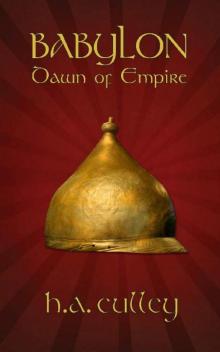 Dawn of Empire
Dawn of Empire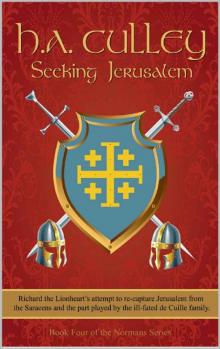 Seeking Jerusalem
Seeking Jerusalem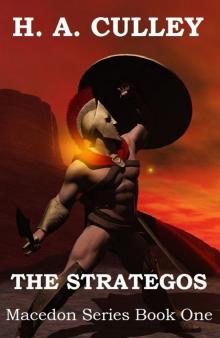 The Strategos
The Strategos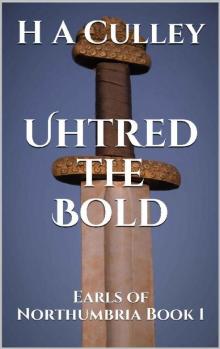 Uhtred the Bold
Uhtred the Bold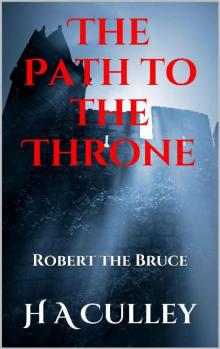 The Path to the Throne
The Path to the Throne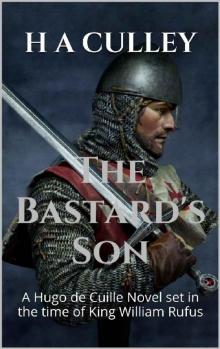 The Bastard's Son
The Bastard's Son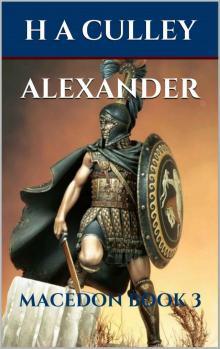 Alexander
Alexander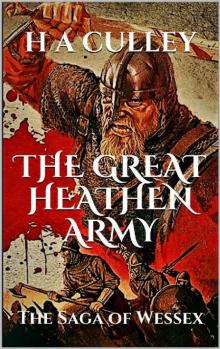 The Great Heathen Army
The Great Heathen Army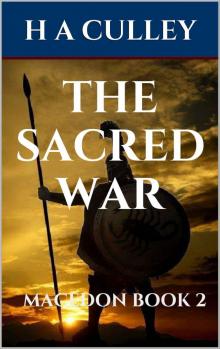 The Sacred War
The Sacred War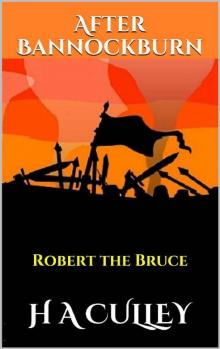 After Bannockburn
After Bannockburn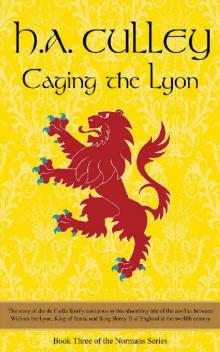 Caging the Lyon
Caging the Lyon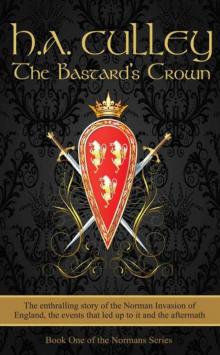 The Bastard's Crown
The Bastard's Crown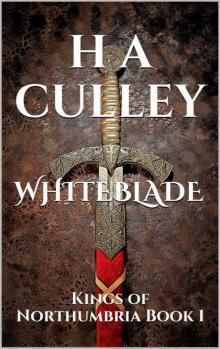 WHITEBLADE
WHITEBLADE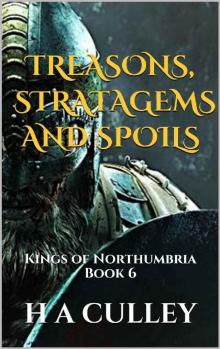 TREASONS, STRATAGEMS AND SPOILS: Kings of Northumbria Book 6
TREASONS, STRATAGEMS AND SPOILS: Kings of Northumbria Book 6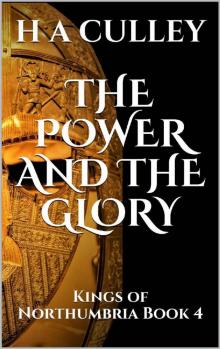 THE POWER AND THE GLORY: Kings of Northumbria Book 4
THE POWER AND THE GLORY: Kings of Northumbria Book 4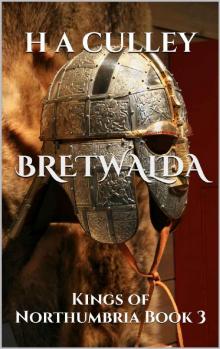 BRETWALDA: Kings of Northumbria Book 3
BRETWALDA: Kings of Northumbria Book 3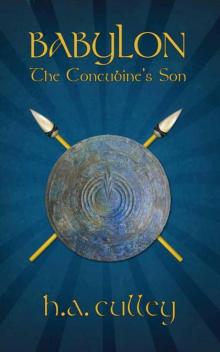 The Concubine's Son
The Concubine's Son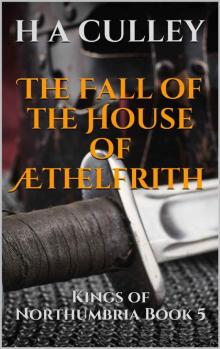 The Fall of the House of Æthelfrith: Kings of Northumbria Book 5
The Fall of the House of Æthelfrith: Kings of Northumbria Book 5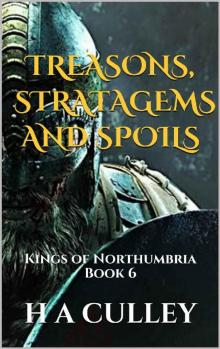 TREASONS, STRATAGEMS AND SPOILS
TREASONS, STRATAGEMS AND SPOILS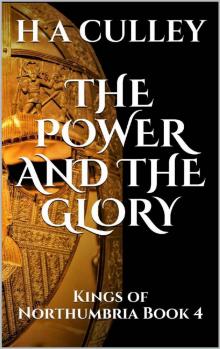 THE POWER AND THE GLORY
THE POWER AND THE GLORY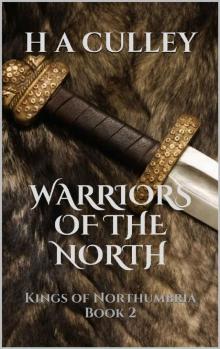 WARRIORS OF THE NORTH
WARRIORS OF THE NORTH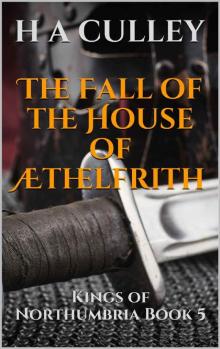 The Fall of the House of Æthelfrith
The Fall of the House of Æthelfrith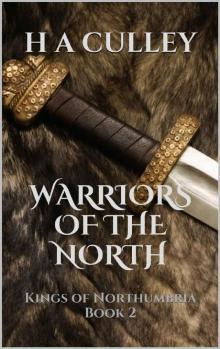 WARRIORS OF THE NORTH: Kings of Northumbria Book 2
WARRIORS OF THE NORTH: Kings of Northumbria Book 2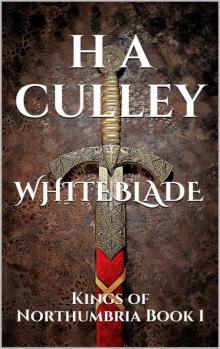 WHITEBLADE: Kings of Northumbria Book 1
WHITEBLADE: Kings of Northumbria Book 1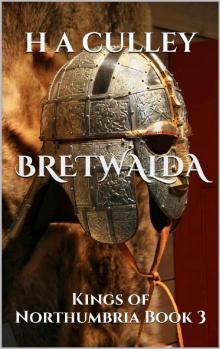 BRETWALDA
BRETWALDA